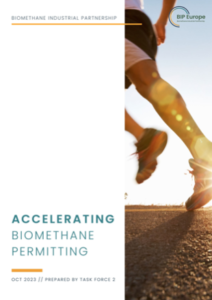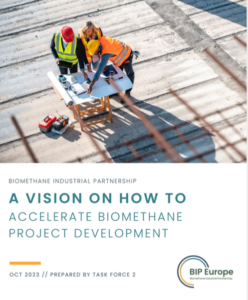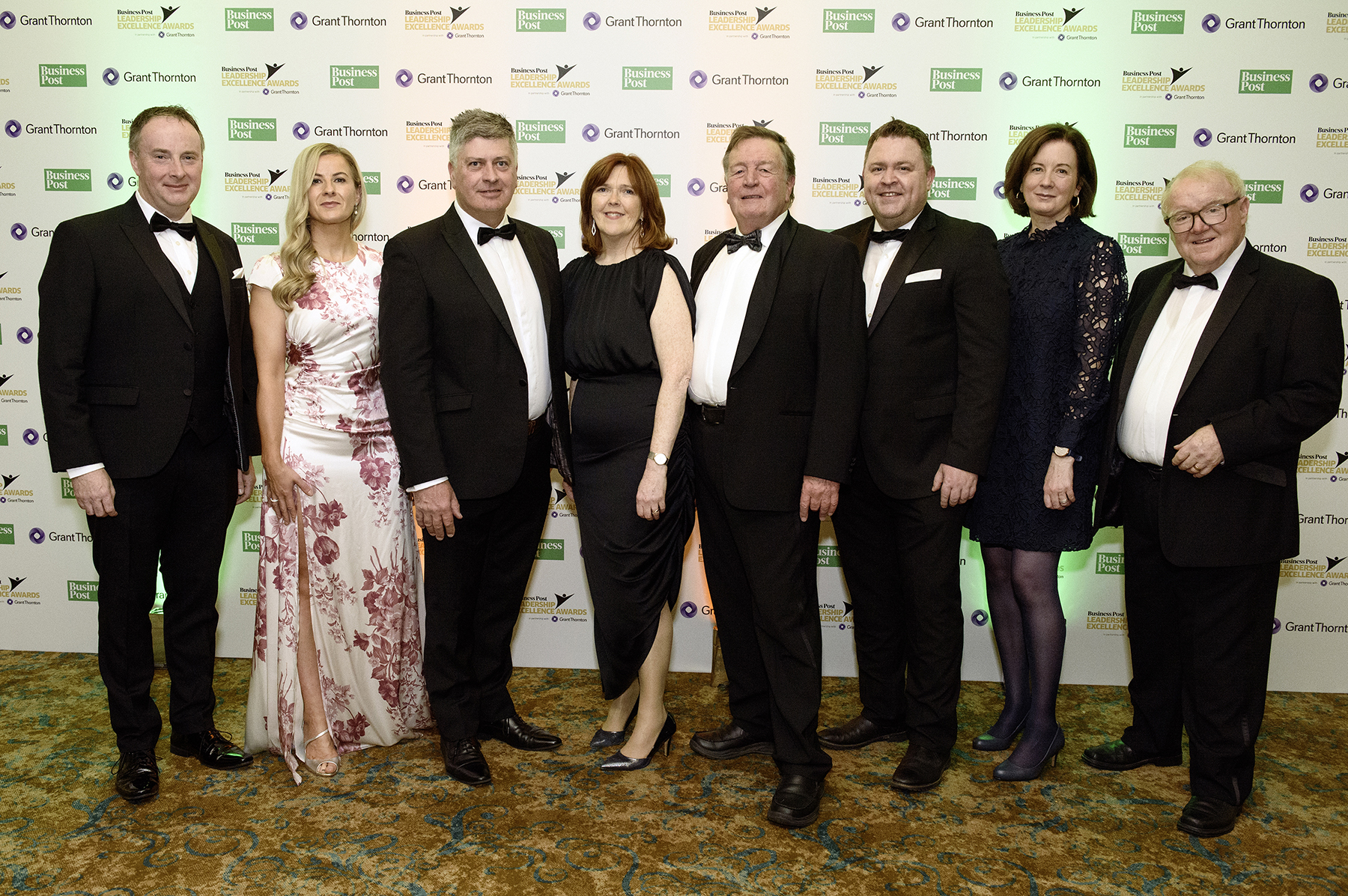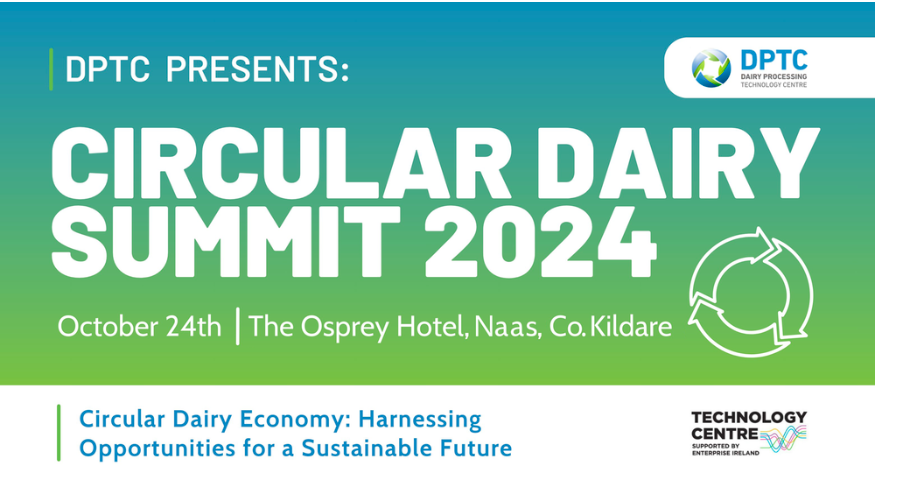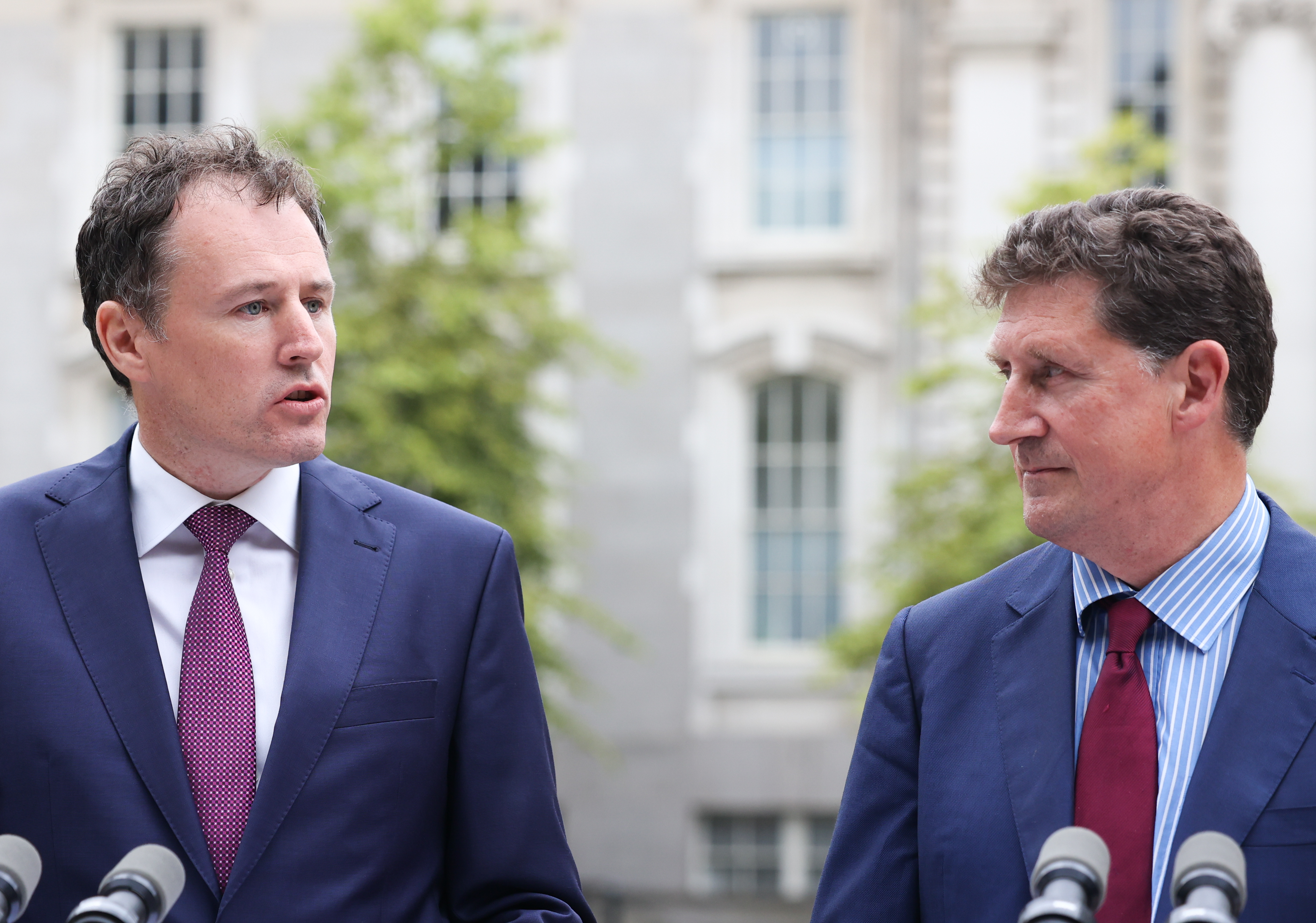RGFI received leadership recognition from the Business Post this month, as CEO PJ McCarthy,…
Accelerating Biomethane Production and Permitting – new reports
RGFI is the Irish representative on the Biomethane Industrial Partnership (BIP) which today launches two reports setting out findings and recommendations, on accelerating biomethane project development and permitting. The Reports, which were produced by the BIP Taskforce 2, draw on expertise and experience across EU member states, and are being submitted to the European Commission and Member States, for consideration and guidance on National Biomethane Strategies.
RGFI is pleased to have contributed to BIP Task Force 2 and to be central to collaborations leading the development of the biomethane industry and the National Biomethane Strategy in Ireland and across the EU.
‘A Vision on how to Accelerate Biomethane Project Development’ analyses how project development and investment decisions can be accelerated.
It concludes that project developers and investors will only be able to decide on investments in new production capacity if they perceive a positive business case to de-risk investments, reduce costs and help secure sufficient revenues, while considering an efficient deployment of public funds through incentives, access to all end use sectors and existence of an EU internal market for biomethane.
A key finding is that initial production financing is most suited to kick-start investments in biomethane capacity or to support investments in innovative production capacities, while demand side actions (such as greenhouse gas intensity targets or biomethane quotas) apply to further scale up biomethane investments in maturing markets”.
As Ireland is an emerging biomethane market, it will require clear Government policy and financial support.
‘Accelerating Biomethane Permitting’ explores the barriers to accelerating the permitting process and best practices to overcome them.
One significant proposal is the introduction of a zoning approach, with pre-identified geographical areas where biomethane production gets prioritised, with sufficient availability of sustainable feedstock and access to gas grid infrastructure. In these areas permitting is expected to be quicker or even automatic.
Other best-practices are the implementation of a one stop shop for biomethane permitting, appointing a single office responsible for managing the permitting application and communication with the applicant, and the organisation of an engagement prior to the permitfiling between the project developer and the one-stop-shop officer to create mutual understanding of the required document and procedures.
The work emphasises that biomethane offers additional benefits beyond its molecular value and climate change mitigation. These additional environmental, social and agricultural benefits are not yet fully considered or taken into account in most existing incentives schemes.
RGFI CEO, PJ McCarthy commented today:
“The Irish Government launched the Bio-economy Action Plan to 2025 last week ,which is very timely in that it acknowledges the production of biomethane as a valuable component of a functioning bioeconomy. RGFI welcomes Minister McConalogue’s acknowledgement of the importance of developing the agri-led biomethane expansion alongside the sustainable development of the bioeconomy and its key enabling technology, biorefining, with the potential for co-location and the production of multiple biobased products – which should include biofertilisers and biogenic CO2 “
Download the Reports here:
The biomethane task force was launched in September 2022 as part of the Biomethane Industrial Partnership (BIP), an initiative supported by the European Commission to achieve 35 billion cubic metres of sustainable biomethane by 20302. The BIP has six task forces that focus on different aspects of biomethane development, such as national targets, project financing, biomass sources, cost efficiency and cross-border cooperation. RGFI is the Ireland industry representative.

